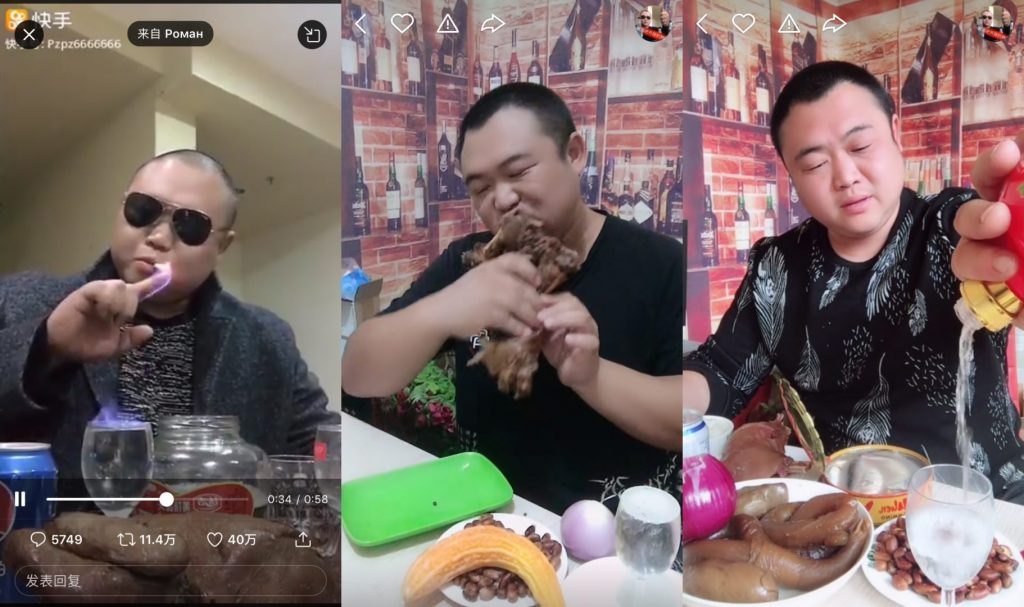Streamers on China’s coarse TikTok rival drift between the alieantion of the ‘jianghu’ and dreams of mainstream success.
Last August, 20-something influencer Xin Youzhi finally got his mainstream crossover moment. The self-proclaimed “Peasant CEO” with 40 million fans on livestreaming platform Kuaishou has long been popular within the confines of China’s earthiest livestreaming app, but after he reportedly dropped 50 million yuan ($7 million) on an opulent wedding featuring appearances by Jackie Chan and singers Wang Leehom, Cecilia Cheung, and GEM, his inspirational rags-to-riches story started making the rounds of the broader Chinese internet. In January, he thrust himself back into the spotlight by trumpeting a 100 million yuan donation to the epidemic relief effort; in March, he loudly claimed to have sold 400 million yuan of goods in a single streaming session.
Xin is a product of his virtual environment: Kuaishou was founded in 2011 as a GIF-making tool, and developed into a community for short-video makers in 2013. After introducing a livestreaming function in 2016, the TikTok competitor emerged from obscurity to cultivate a brash, working-class aesthetic. Most of the app’s best known personalities — MC Tianyou, “King of the Social Shake” Paipaiqi, and “Peasant CEO” Xin — are rural Chinese with no professional or industry background. Like many of their fans, before hitting it big, they were high school dropouts working odd jobs as grill masters or trying to make it as gangsters.
Their less-than-cultivated antics and street affectations have occasionally gotten them in trouble with the country’s content regulators. In 2018, the Cyberspace Administration of China issued a ban on almost all of the most popular online MCs amid the “social shake” dance craze. The official reason given for the ban was that online celebrities were crossing legal boundaries in their attempts to increase their fan base — notably, by carrying out fake philanthropic events, organizing fistfights with other streamers, or engaging in self-harm.
But to their fans, who coalesce into gang-like fan “families,” or jiazu, around a given star or stars, they’re idols. Some Kuaishou families require members to include their favorite livestreamer’s name in their handles and encourage them to fight for their idol by posting comments on the pages of “enemy” livestreamers. Idols encourage this behavior, manufacturing rapper-esque beefs to grab attention and boost their brand. Continue to read the full article here.
– This article originally appeared on Sixth Tone.







